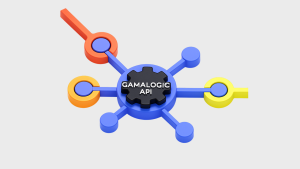- What Is Email Validation Accuracy?
- Why Accuracy Matters: The Foundation of Deliverability
- Key Metrics & Industry Benchmarks used to Email Validation Accuracy
- How Email Validation Accuracy Is Measured
- Catch-All Detection: The Accuracy Challenge
- Accuracy Benchmarks: How Providers Compare
- How Validation Accuracy Affects ROI
- The Role of APIs in Maintaining Accuracy
- Compliance & Trust: GDPR, CCPA & Double Opt-In
- Practical Takeaways: Maintaining Long-Term Accuracy
- Conclusion
- FAQs on Email Validation Accuracy
Email validation accuracy defines the real strength of any verification platform it’s not just about detecting invalid emails, but about how reliably a system predicts which addresses will actually deliver.
In this guide, we’ll explore what email validation accuracy truly means, how it’s measured, why it matters for your sender reputation, and how modern APIs including real-time and batch validation tools achieve near 99% precision.
This guide covers:
- What defines accuracy in email validation
- Key metrics and benchmarks (bounce rate, delivery rate, false positives)
- How validation accuracy affects sender reputation
- Technical accuracy checks: syntax, MX, and SMTP
- Catch-all detection and challenges to 100% accuracy
- Comparing accuracy levels across leading providers
- How to choose a validation API for your marketing stack
What Is Email Validation Accuracy?
Email validation accuracy measures how effectively a service can distinguish between valid, invalid, and risky email addresses.
Accuracy determines whether your emails reach real inboxes directly influencing email deliverability, bounce rate, and marketing ROI.
In simple terms:
Validation Accuracy = Correctly Verified Emails / Total Emails Tested
A strong validation system maintains accuracy of 98% to 99%, ensuring fewer than 2% bounces the global benchmark for healthy lists.
Wants to Now more about Email validation ?
Read More : What is Email Validation? And How to Validate Email
Why Accuracy Matters: The Foundation of Deliverability
Every undeliverable or fake email that slips through damages your sender reputation and reduces email deliverability.
Accurate validation ensures your marketing emails land where they’re meant to not spam folders.
Impact of Poor Accuracy:
- Increased hard bounces – damages IP reputation.
- Higher spam complaint rates – leads to blacklisting.
- Lower open and click-through rates (CTR) – affects ROI.
High accuracy → Better deliverability → Stronger reputation → Sustainable engagement.
Key Metrics & Industry Benchmarks used to Email Validation Accuracy
Let’s break down the main performance metrics used to evaluate email validation accuracy:
| Metric | Definition | Healthy Benchmark |
|---|---|---|
| Accuracy Rate | % of correctly validated emails | 98%–99%+ |
| Bounce Rate | % of emails that fail to deliver | <2% ideal, <5% acceptable |
| Delivery Rate | % of emails successfully delivered | 95%+ |
| Open Rate | Recipients who opened the email | 20–30% (depends on industry) |
| CTR (Click-Through Rate) | Recipients who clicked a link | 2–5% |
| Unsubscribe Rate | Recipients who opt out | <0.5% |
Maintaining these numbers isn’t just about clean data it’s about sustaining trust and engagement in your entire email ecosystem.
How Email Validation Accuracy Is Measured
Email validation APIs perform a multi-step verification process involving syntax, domain, and mailbox checks.
Each layer contributes to the overall accuracy score.
1. Syntax Check → Ensures proper email format (e.g., john@example.com)
2. Domain (MX) Check → Verifies domain DNS and MX record existence
3. SMTP Check → Communicates with the mail server to confirm mailbox status
4. Disposable Email Detection → Identifies temporary emails from free providers
5. Catch-All Detection → Recognizes domains that accept all emails (the hardest challenge)
6. Role-Based Detection → Filters emails like “info@” or “sales@” that don’t represent individuals
👉 Related post: Real-Time vs Batch Email Validation: When to Use Each
Catch-All Detection: The Accuracy Challenge
A catch-all domain accepts every email sent to it, regardless of whether the mailbox exists making validation complex.
Accurate catch-all detection requires advanced algorithms, SMTP heuristics, and risk scoring.
Why It Matters:
- Prevents false positives (marking invalid as valid).
- Protects your campaigns from hidden bounces.
- Helps maintain accurate engagement metrics.
For a deeper breakdown, read: The Cold Email Hack You’re Missing: Catch-All Email Validation Explained!
Accuracy Benchmarks: How Providers Compare
| Provider | Reported Accuracy | Strength |
|---|---|---|
| Gamalogic | 99% | API-first accuracy with real-time + bulk validation modes, Strong AI scoring & fraud detection |
| Emailable | 99% | Balanced real-time + batch validation |
| Bouncer | 99.5% | Enterprise-grade scalability |
| Clearout | 98% | Consistent results with role-based filtering |
| NeverBounce | 93% | High-volume friendly |
Interpretation:
Top providers maintain <2% bounce rates and 98–99% accuracy.
The difference lies in real-time processing, catch-all handling, and API response consistency.
How Validation Accuracy Affects ROI
Better accuracy = higher ROI.
Every clean email saved avoids wasted send costs, better segmentation, and higher user engagement.
Direct ROI Impacts:
- Lower bounce management cost in CRMs.
- Higher open and click rates for campaigns.
- Reduced blacklist risk, improving domain reputation.
- More precise remarketing from accurate segments.
The Role of APIs in Maintaining Accuracy
Modern Email validation APIs tool like integrate directly into CRMs, sign-up forms, and lead workflows.
- Real-Time API: Validates each email during form submission.
- Bulk API: Processes large lists before campaign execution.
- Webhook Support: Returns verification results automatically for automation.
Accurate APIs maintain a consistent validation loop, ensuring that your email database stays clean, compliant, and conversion-ready.
Wants to Now more about Email validation Api ?
Read More : The Complete Guide to Email Validation APIs | Features, Benefits, How to integrate & Best Tools
Read More : How to Integrate an Email Validation API – A Developer’s Guide (Node.js / Python / cURL)
Compliance & Trust: GDPR, CCPA & Double Opt-In
Accurate validation supports compliance by ensuring consent-based, valid contacts.
Adding double opt in verification ensures subscribers confirm interest, further boosting data integrity and GDPR adherence.
Practical Takeaways: Maintaining Long-Term Accuracy
To maintain 98%+ accuracy consistently, follow these best practices:
✅ Use real-time Email validation for sign-ups.
✅ Run batch cleaning monthly or quarterly.
✅ Remove bounced, disposable, and inactive emails promptly.
✅ Monitor bounce and open rates regularly.
✅ Combine API validation + double opt-in for best results.
Conclusion
In the world of email marketing, accuracy is everything.
Accurate validation ensures clean lists, higher deliverability, and a stronger sender reputation.
With evolving detection technologies like catch-all handling, SMTP heuristics, and AI-based risk scoring, modern APIs such as Gamalogic Email Validation API make 99% accuracy achievable and maintainable at scale.
Together with real-time validation, batch cleaning, and compliance practices, you can build a bulletproof email ecosystem that delivers more, costs less, and engages better.
FAQs on Email Validation Accuracy
Q1: What is a hard bounce, and how does it affect accuracy?
A hard bounce occurs when an email cannot be delivered permanently (e.g., invalid domain or mailbox). High hard bounce rates indicate poor accuracy or outdated lists.
Q2: How often should I clean my email list?
At least every quarter or monthly if you send frequent campaigns.
Q3: Can validation prevent spam traps?
Yes, partially. High-quality validators detect spam trap domains and role based addresses to minimize risks.
Q4: What is false positive email verification?
It’s when an invalid or inactive address is incorrectly marked as valid reducing actual accuracy.
Q5: What is the best accuracy rate for an email validation API?
A robust validation API should maintain 98–99% verified accuracy across test lists and deliverability metrics.
You might also like

Cold Email Isn’t the Same Game Anymore
Cold email isn’t what it used to be. Discover why old outreach tactics no longer work and learn how to adapt your cold email strategy for today’s inbox.

Why Your Emails and Newsletters Aren’t Getting Through, and How Email Validation API tool Can Help
You’ve crafted the perfect email campaign—only to see it bounce or vanish into spam folders. Discover how an Email Validation API can safeguard your sender reputation, boost deliverability, and ensure your messages land where they belong.






 No credit card required
No credit card required



Post your Comment.